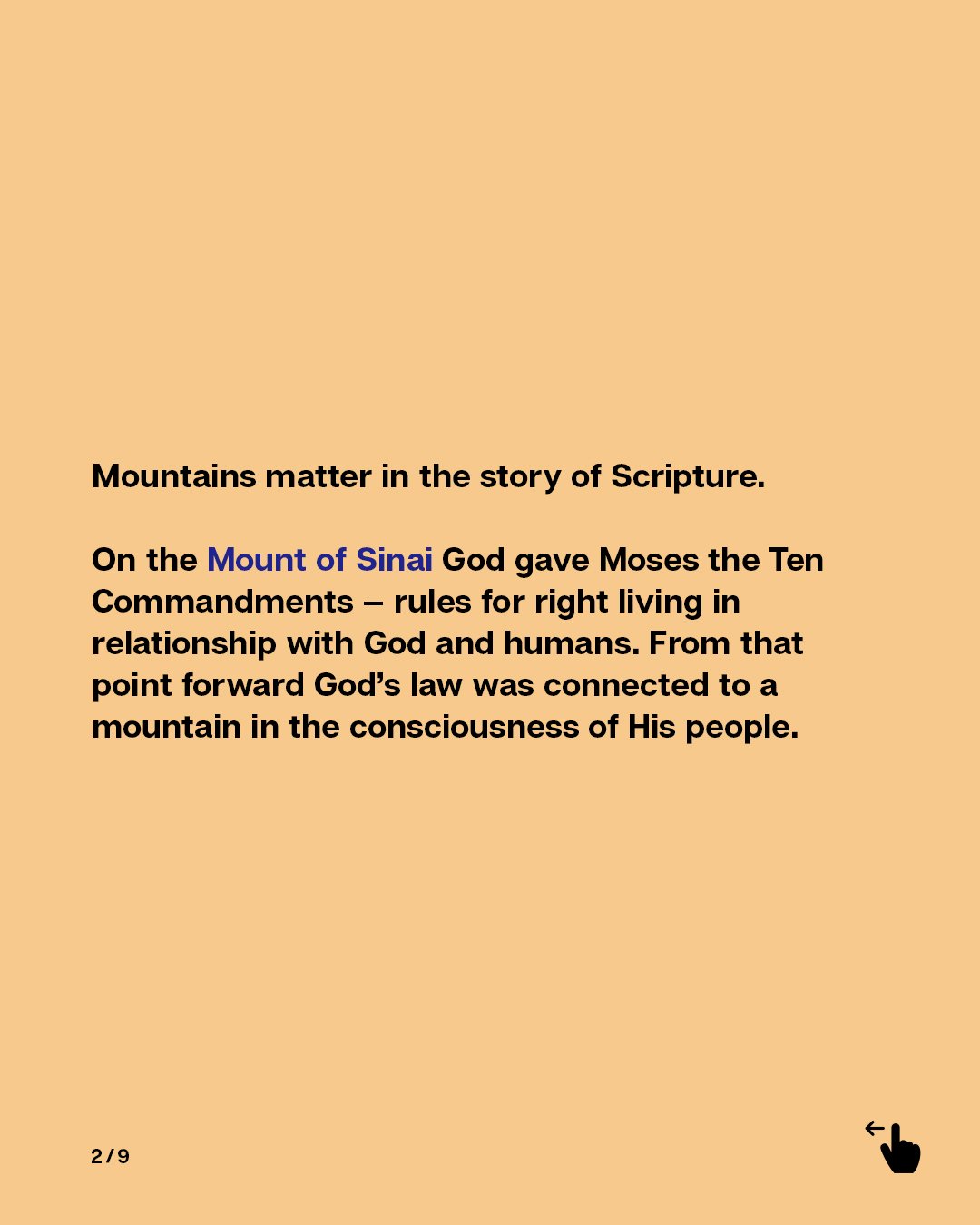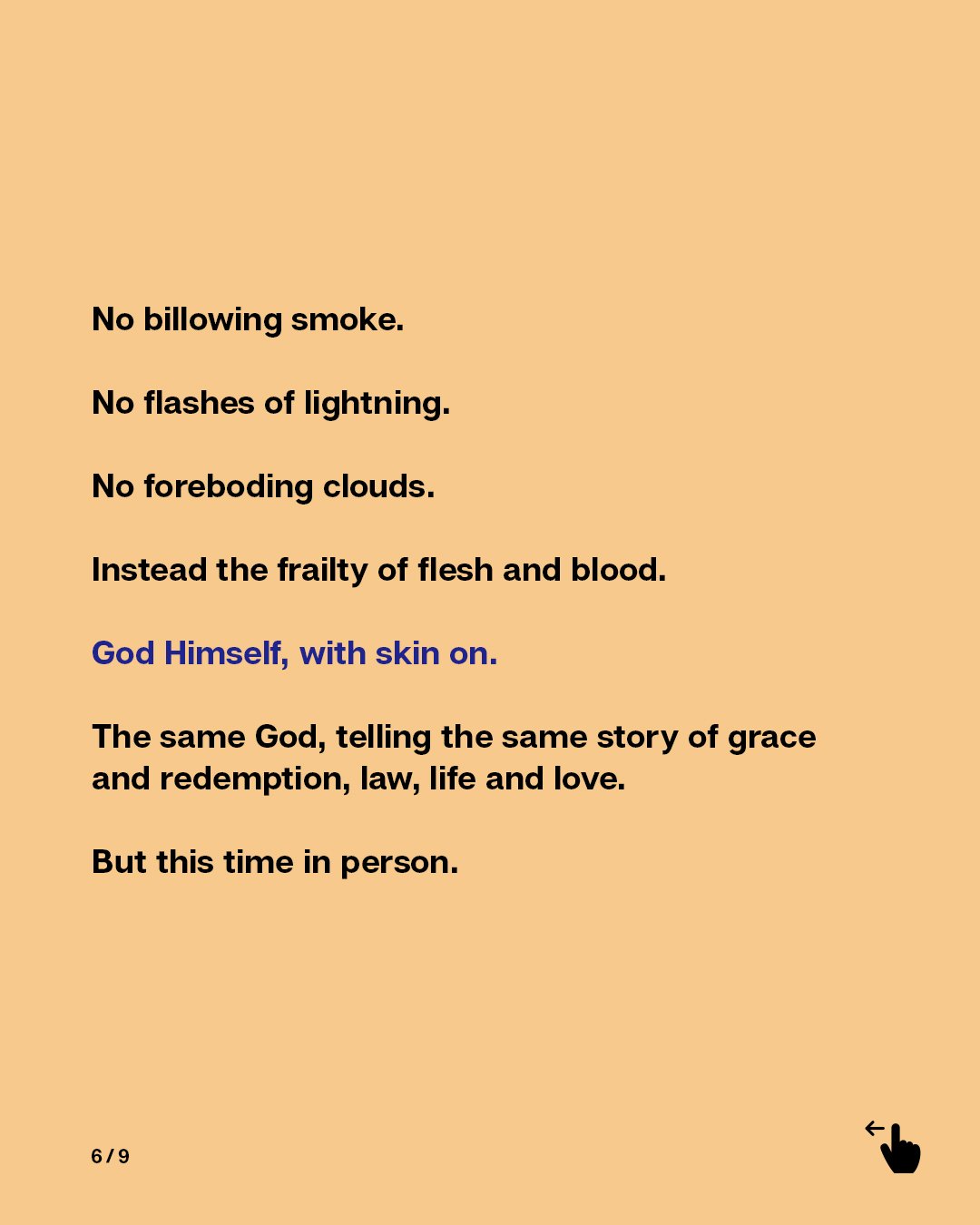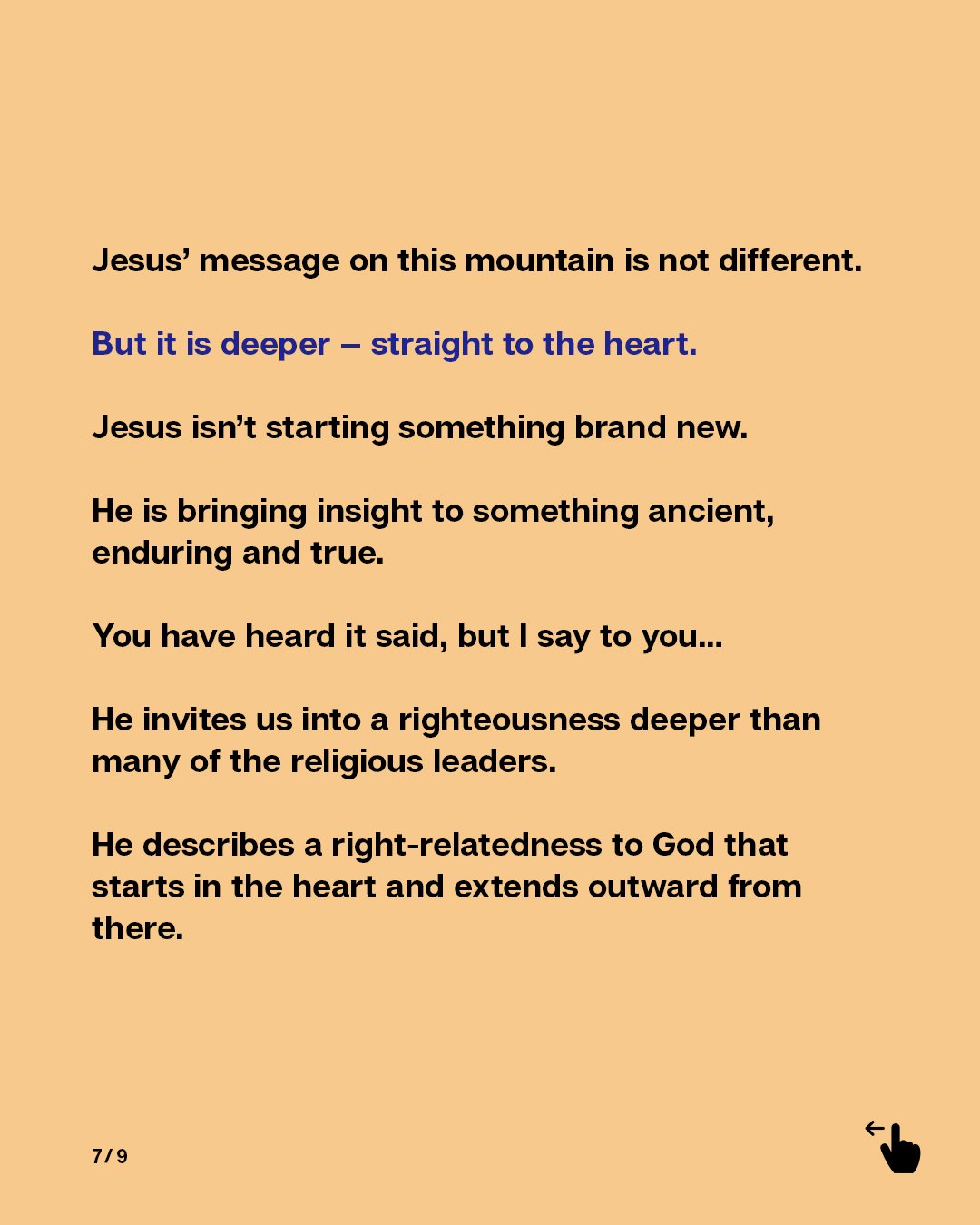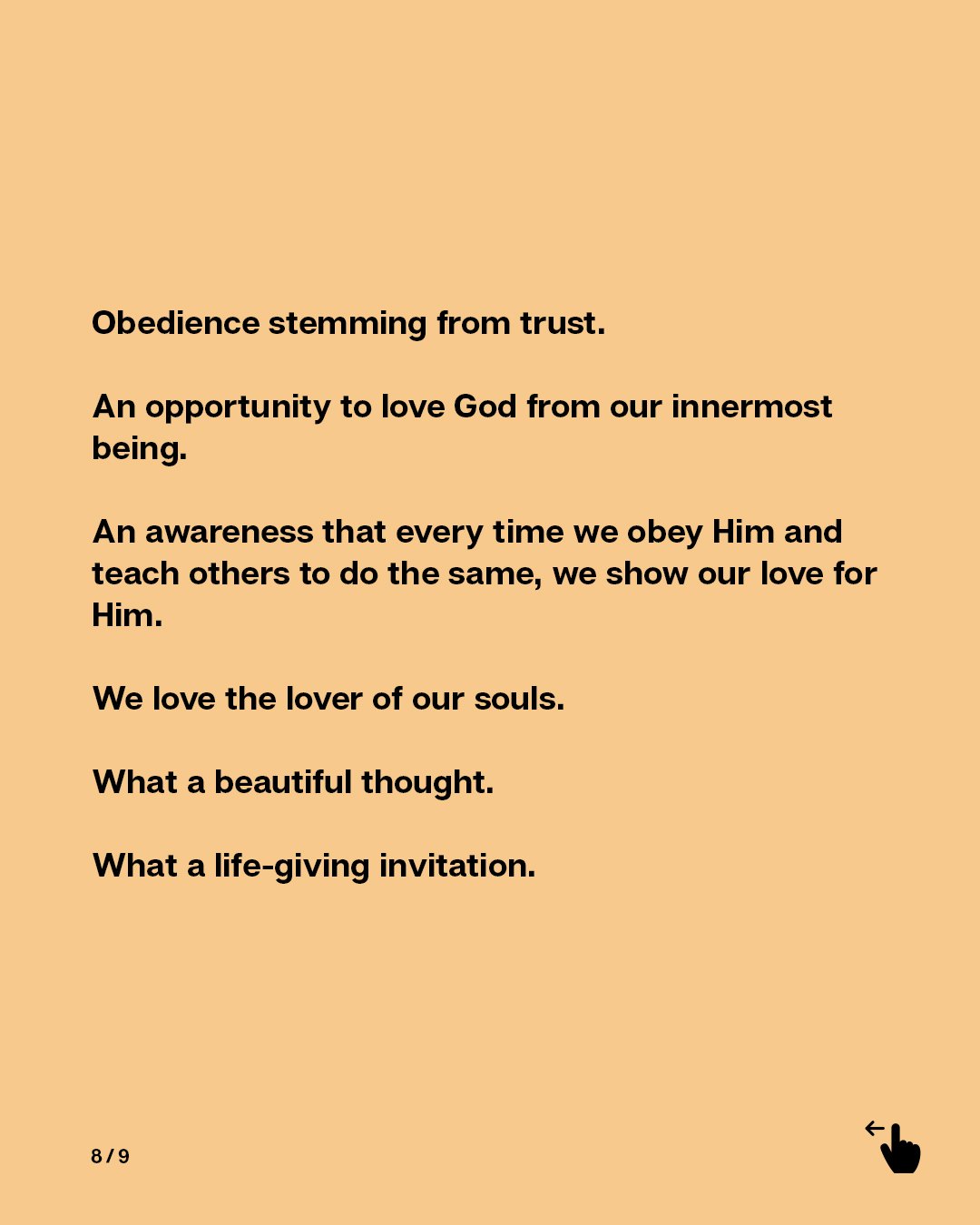From Mount Sinai to the Sermon on the Mount
Mountains matter in the story of Scripture.
On the Mount of Sinai God gave Moses the Ten Commandments — rules for right living in relationship with God and humans. From that point forward God’s law was connected to a mountain in the consciousness of His people.
When we arrive at the Sermon on the Mount, Jesus has already come out of Egypt, passed through the waters of baptism, and spent forty days being tempted in the wilderness.
Every first century Jewish person would have recognized the echoes of Israel’s own redemption.
In his own person Jesus is retelling the story of God’s people, but with one significant difference.
Whereas Adam and Eve (and later Israel) failed to fully obey God, Jesus will succeed.
He will live God’s law perfectly on our behalf.
And on another mountain, as one greater than Moses, Jesus gives an authoritative interpretation of God’s law.
The same God who gave the 10 commandments to his people on Mount Sinai has come again in an even more profound way.
No billowing smoke.
No flashes of lightning.
No foreboding clouds.
Instead the frailty of flesh and blood.
God Himself, with skin on.
The same God, telling the same story of grace and redemption, law, life and love. But this time in person.
Jesus’ message on this mountain is not different. But it is deeper — straight to the heart.
Jesus isn’t starting something brand new.
He is bringing insight to something ancient, enduring and true.
You have heard it said, but I say to you…
He invites us into a righteousness deeper than many of the religious leaders.
He describes a right-relatedness to God that starts in the heart and extends outward from there.
Obedience stemming from trust.
An opportunity to love God from our innermost being.
An awareness that every time we obey Him and teach others to do the same, we show our love for Him.
We love the lover of our souls.
What a beautiful thought.
What a life-giving invitation.
Why wouldn’t we say yes to this deeper righteousness, the law of God written on our hearts by the Spirit, a solid foundation in a world of chaos, a blue-print for life that is truly life?
“Be angry but in your anger, do not sin.”
Your anger might be a response to your mistreatment.
Your anger may be telling you that your abuse is unacceptable and that you should be treated with dignity and kindness.
In this way, anger can be a friend who is for us.
Emotions like anger don’t always lie to us, sometimes they tell us the truth about ourselves and our situation.
Yet, “in your anger do not sin.”
Jesus is not talking about healthy anger.
Jesus is highlighting anger that hardens into contempt.
Anger that erases humans in our heart.
Anger that dehumanizes.
Anger like this is different than murder, but they are travelling on the same road — murder is just a little further down the path.
And, like a practiced physician, Jesus refuses to deal with symptoms only.
He is interested in the root causes of murder — anger and contempt for another human.
A lot of people are angry.
Covid. Mandates. Passports. Policies. Politicians. Protests.
The issues are complex, layered and require nuance and careful thought. Whatever your position on the above matters, here is something we can all agree on.
People are deeply divided.
The division is leading to anger.
The longer it festers, the angrier we get.
The anger is shifting toward contempt.
We look down on others. View them as stupid, — emptied headed and without heart.
The word fool is on our lips.
The word “raca” (empty headed) festers in our hearts.
We may be in danger of the fires of hell, according to Jesus.
This is not the way of His kingdom.
In our polarized world we are called to be agents of radical reconciliation — all in response to the good news of God’s kingdom breaking into the world.
“while we were God’s enemies, we were reconciled to him through the death of his Son.”
God could have written us off.
God could have washed his hands of us.
But He didn’t.
Instead, Jesus did the costly thing.
And it led Him to a cross.
In uncertain, divided times the church is invited by Jesus to lead the way — to show what costly reconciliation looks like in an hostile, embattled culture.
Even when we disagree.
Especially when we disagree.
Followers of Jesus must put on display what it looks like to disagree, but still live in unity.
To throw back to the Beatitudes for a moment.
Followers of the way of Jesus ought to care more about being rightly-related to others than we care about being right.










